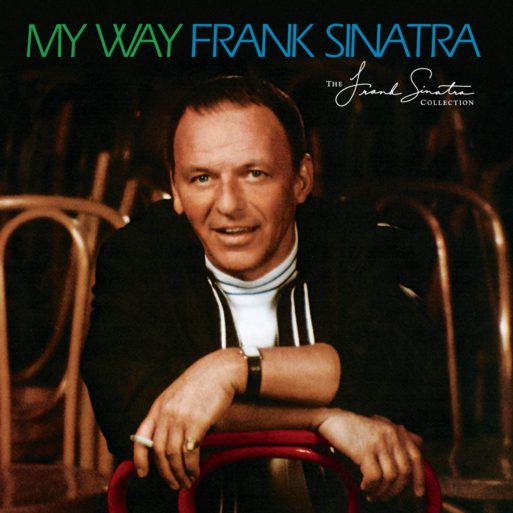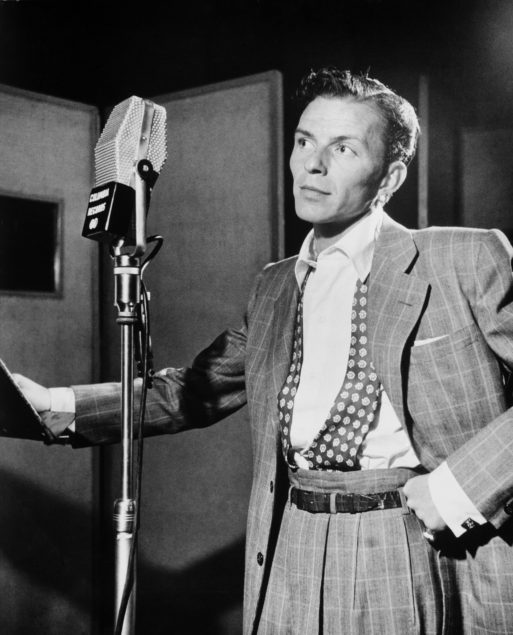
Frank Sinatra’s album “My Way” featured his best-selling single of the same name.
Frank Sinatra released the beloved melody “My Way” on January 1, 1969, as the title song on an album of the same name. “My Way” quickly became a trademark tune for Sinatra throughout the decades to follow. Although not revered by everyone, the song became a multi-generational cultural phenomenon despite its self-indulgent tone.
“My way” initially began as a French song called “Comme D’Habitud.” The English lyrics were written by Paul Anka, a singer-songwriter best known for “Diana” and “Put Your Head on My Shoulder.” The English lyrics are completely unrelated to the song’s French counterpart, as Anka was inspired to write them for his idol, Sinatra. The tune became an iconic milestone in Sinatra’s career. It has since been recorded by a variety of other artists including Elvis Presley, Sid Vicious, Willie Nelson and Paul Anka himself.
However, Sinatra’s version is the most well-known rendition across the globe. With its reference to life gone by, it is no surprise that this iconic tune has become a popular song of choice to be played at a memorial. It was even heard by mourners at the funeral for the young murdered rapper Nipsey Hussle in 2019.
Over fifty years later, “My Way” remains one of the most-played songs at funerals in modern day history. Co-op Funeralcare, a national funeral director brand in the United Kingdom, has been compiling musical funeral charts for twenty years. They estimate that “My Way” is played at one in seven funerals. In 2021, the song dropped to number two after holding the number one spot for several years in a row.
Although some critics tout the lyrics as trivial against Sinatra’s usual standards, they certainly resonate with notable clarity for most people. I have never met anyone young or old in my lifetime, who is unfamiliar with this tune. So, whether beloved or not, familiarity can often bring comfort to those mourning the loss of a loved one.
The song begins with a melancholy admission that life has drawn to an end. The traveler confidently declares that his life once lived was done my way.

After a week of rehearsals, Frank Sinatra recorded “My Way” in one take
And now, the end is near
And so I face the final curtain
My friend, I’ll say it clear
I’ll state my case, of which I’m certain
I’ve lived a life that’s full
I traveled each and every highway
And more, much more than this
I did it my way
Even regrets were “too few to mention.” And although the nearly departed admits biting off more then he or she could chew, they left this world without doubt while eating it up and spitting it out. Then, while facing it all and standing tall, they again outright declares, “And did it my way.”
A National Public Radio (NPR) article highlighted “My Way” as America’s anthem of self-determination. Its unmistakable tone is that of someone who has lived courageously without compromise. Sinatra’s youngest daughter, Tina, told NPR, “An anthem is something everybody, I think, responds to. And the only difference with dad and ‘My Way’ is you don’t have to stand up.”
But what anthem would be complete without a resounding crescendo? Sinatra bellows a final self-admission of courage amid the backdrop of a full orchestra rising in volume.
For what is a man, what has he got?
If not himself, then he has naught
To say the things he truly feels
And not the words of one who kneels
The record shows I took the blows
And did it my way. Yes, it was my way.
In the end, as we will all come to face the final curtain, there is no wrong song to play at your, or your loved one’s funeral. No wrong way. Only your way. Or, as Sinatra, Old Blue Eyes, tells it best, “My Way.”

 “My Way” by Frank Sinatra
“My Way” by Frank Sinatra


 National Donate Life Month Reminds Us To Give
National Donate Life Month Reminds Us To Give
 How Dare You Die Now!
How Dare You Die Now!
 Debating Medical Aid in Dying
Debating Medical Aid in Dying














